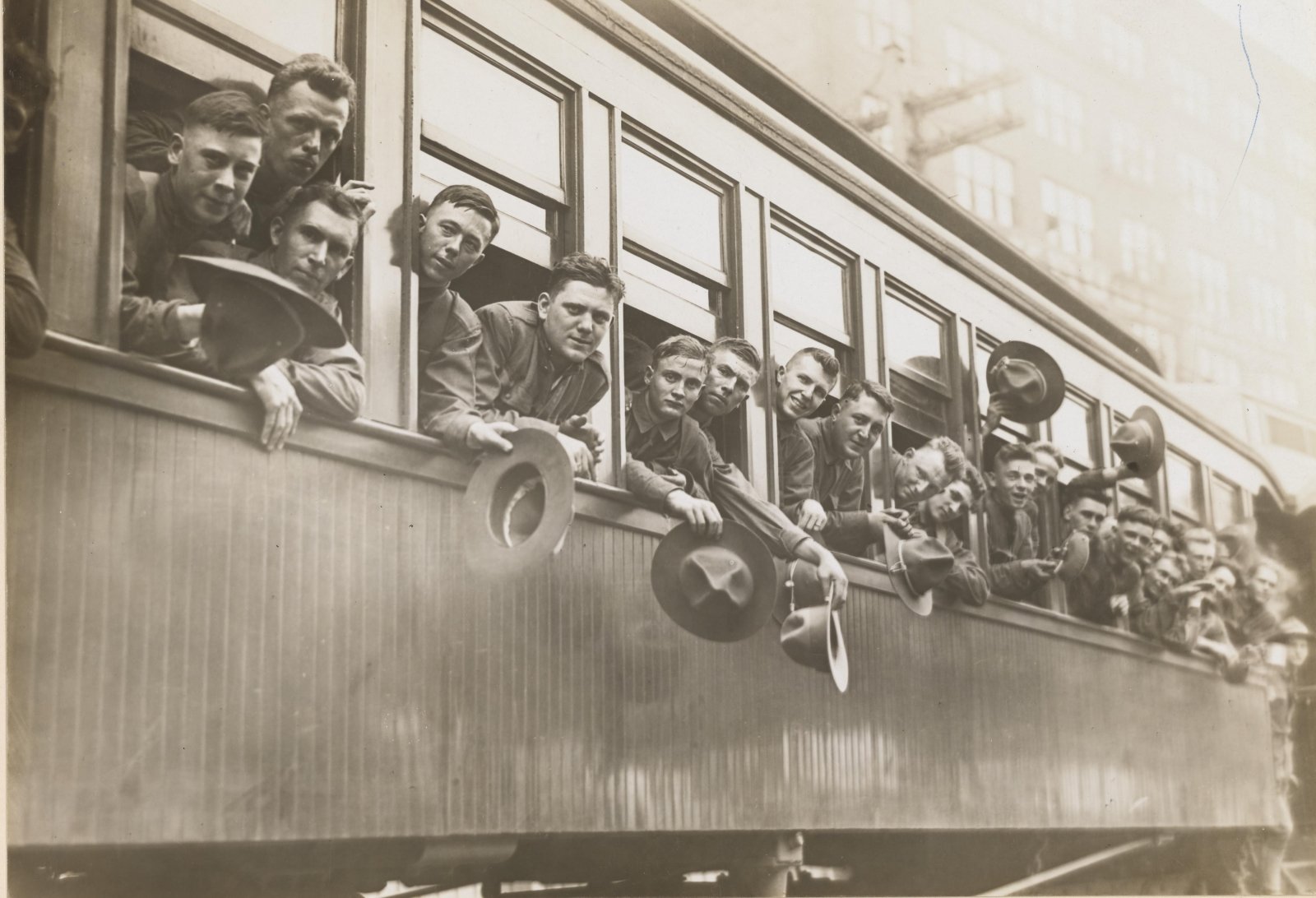FinnForum X and Retrospection & Respect Remember the Copper Strike of 1913-14 this Weekend

Now, to people’s horror,
thugs and wretches from around the country
are imported and granted the right to reproach
and murder strikers with guns…
I wonder if justice is gone
and if all humanity has surrendered,
hardened to the bondage of mine slavery
and to the squalor of misery and labor?
No! Justice has not collapsed,
it lives still – on the strikers’ side,
it will rise, a frontal threat,
and it does not intend to die…
This poem was written by Finnish immigrant poet, Aku Päiviö, who moved to the United States in 1902 after he was invited to work for local newspapers in Calumet and Ironwood, Mich. He composed the poem “Voi Oikeus! Voi Ihmisyys!” (“To Justice! To Humanity!”) to commemorate the 1913–1914 Michigan Copper Strike and particularly the tragic events at the end of 1913.
This is the first time his writing on the strike and the tragedy at Italian Hall has been translated. It was done by Brooke Boulton, an adjunct professor at Northern Michigan University and a presenter for this year’s FinnForum X, coming to the Copper Country April 10-12.
Since 1974, FinnForum has developed into a premier international conference that provides a public arena where scholars working in widely dispersed locations and diverse disciplines come together to present the results of their research of "Finns."
Finnish immigrants played a major role in the 1913–1914 mining strike and have continued to be a major influence in the community today. Opening their social halls, leading strike parades, and printing newspapers gave Finns a voice in this turbulent time. FinnForum X will highlight this role as well as other histories of working-class.
Retrospection and Respect: the 1913-1914 Mining/Labor Strike Symposium is being held in conjunction with FinnForum X and commemorates the cessation of the 1913-1914 Western Federation of Miners labor strike against copper mining companies in the Copper Country of Upper Michigan. Presenters will explore the role of labor organizations in the historical and contemporary American and European mining industries, the effect of historical European immigration on labor organization, the impacts of early twentieth century labor organizational practices and strikes on American managerial practices in mining and other industries, and women’s activism in early twentieth century labor organization in mining and other industries, as well as other topics connecting issues of ethnicity, identity, class, gender, and other cultural divisions to civic discourse and the historic struggle for civil liberties within industry.
Alice Margerum, lead historian for the singing group, The 1913 Singers, will speak about the songs and image making during the strikes. Her groupwill also perform songs from the strike on Saturday night.
An exhibit titled “Tumult and Tragedy: Michigan’s 1913–1914 Copper Strike” opens at 8 a.m. Thursday, April 10 on the first floor lobby of the J. Robert Van Pelt and John and Ruanne Opie Library on the Michigan Tech campus. The Finnish American Heritage Center at Finlandia University recently installed three exhibits. They include a photographic exhibit titled “Rural Reflections: Finnish American Buildings and Landscapes in Michigan’s Copper Country”; a historic photography exhibit named “People, Place and Time: Michigan’s Copper Country Through the Lens of J.W. Nara”; and a pair of lithographs acquired by the National Park Service which were on either side of the Italian Hall stage the night of the infamous Christmas Eve tragedy 100 years ago.
“It is the 100 year anniversary of the 1913–1914 strikes,” says Beth Russell, archivist for Michigan Technological University Archives and Copper Country Historical Collections. “The strike itself was a major event for both the people and industries in the area and this anniversary offers an opportunity to study the aftermath and ongoing repercussions. Although it can be argued that the strike itself wasn’t a success, it was an important stepping stone for the workers’ rights movement of the early 20th century.”
Also on Thursday, Finlandia’s Nordic Film Festival will show To My Son in Spain: Finnish Canadians in the Spanish Civil War. The film’s writer, Saku Pinta, will be there to answer questions.
On Friday, April 11, there will be an open house at the Finnish American Heritage Center and a trolley tour of the Keweenaw. There is an opening reception for registered attendees at the Wiljanen Community Hall at the Finnish American Heritage Center featuring guest speaker David Salmela and remarks from Scott See, Executive Director of the Keweenaw National Historical Park Advisory Commission.
Saturday, April 12 features a speaker series with both FinnForum X and Retrospection & Respect sessions in Michigan Tech’s Fisher Hall. A dinner, entertainment and a keynote address by University of Wisconsin Professor Emeritus Arnold Alanen will wrap up the weekend’s events on Saturday night.
Co-sponsors of the event are Michigan Technological University’s Van Pelt and Opie Library, Michigan Technological University Archives, Copper Country Historical Collections, Friends of the Van Pelt and Opie Library, Departments of Humanities and Social Sciences, and the Alumni Association. From Finlandia University, the Finnish American Heritage Center and the Finnish American Historical Archives are co-sponsors along with community partners Cranking Graphics, Book Concern Printers, Keweenaw National Historical Park and Advisory Commission. International support has come from Turku, Finland’s Institute of Migration and the History Department at the University of Turku.
For more information and to register, go to digitalcommons.mtu.edu/copperstrikesymposium. Any questions? Contact Beth Russell at copper@mtu.edu.
Michigan Technological University is an R1 public research university founded in 1885 in Houghton, and is home to nearly 7,500 students from more than 60 countries around the world. Consistently ranked among the best universities in the country for return on investment, Michigan's flagship technological university offers more than 185 undergraduate and graduate degree programs in science and technology, engineering, computing, forestry, business, health professions, humanities, mathematics, social sciences, and the arts. The rural campus is situated just miles from Lake Superior in Michigan's Upper Peninsula, offering year-round opportunities for outdoor adventure.




Comments